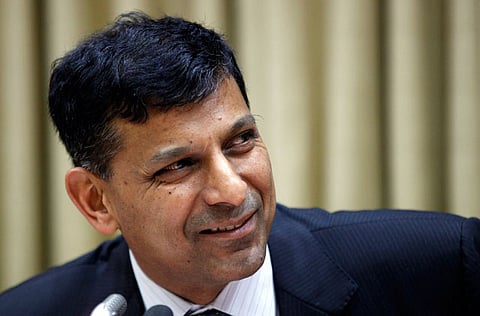India’s top banker needs to steer through chaos
Rajan is a new generation banker, but the parameters within which he has to operate are of the old generation

Incredible stories are coming out of India of how passengers from Dubai and other Gulf airports, including women, have been detained for audacious bids to smuggle gold weighing in kilograms. In one of the latest incidents, two women travelling from Dubai were caught at the Kochi airport with 20 kilo-bars of gold. As it always happens in such cases, they used ingenious methods to hide the merchandise.
Airports around the country are reporting such seizures. Intelligence agencies had alerted all airports and entry points of the danger of heightened smuggling activities in view of the big difference in the price of the metal between Dubai and the Indian markets.
The possibilities of detection are obviously higher, but the risk-reward proposition is hugely in favour of the smugglers. With the latest duty increase announced by the Indian government, the temptation has grown even stronger. So too would be the ratio between successful ‘bids’ and the captures, one might expect.
In the overall tally, it still remains a remote point whether the hike from 10 per cent to 15 per cent on jewellery will help restrict the flow of gold into the country. But what is clear is that with the drop in the price of gold in the international market, it creates more incentives for people to buy from outside, for those who are in a position to do so.
Rules are important, but deep cultural values and practices cannot be changed by administrative measures. Gold for Indians is a symbol of well-being and it has deep-seated sentimental appeal to the individual, family and the society as a whole. Anyone who says gold is bad for the economy and the country is bound to be unpopular.
What if the tax hike fails to act as a deterrent to people still buying gold? Will the government hike the duty further?
Lax in enforcing rules
In the Indian context, where the administration is notoriously lax in enforcing rules, the rate is probably among the least important factors. If only the taxmen had done their work properly, if managers of the exchequer had stuck to their task, if the loot of public wealth had been prevented, if politicians had restricted themselves to what was originally expected of them, the current situation would not have arisen.
The crisis is not without its genesis, in which the role of the Reserve Bank of India has been reduced to that of the bag holder, at the receiving end of the misdeeds of the political class, who consider financial discipline as an affront to their superior being. The politicians do what they want, but expects the central bank to restore order when things go topsy-turvy.
The track record of the new RBI Governor Raghuram Rajan and the previous roles he had handled in his illustrious career obviously raised lots of hope. Weeks have not passed since he took control, but already the euphoria has died down and the market has been jolted back to reality.
The stock markets which seemed to have found new steam on Rajan assuming charge have given up all the gains and the rudderless rupee has recovered some direction only because of the unexpected US Federal Reserve policy twist in favour of continuing with the stimulus plan. This means that more than anything else, what remains intact about the rupee is its vulnerability.
It is no small achievement for Rajan that he could predict the 2008 financial meltdown, which turned the global financial scene upside down. But forecasting a crisis is one thing and engineering a recovery quite another.
Different skills
The skills required for the two responsibilities are totally different. Rajan, in his previous roles, may have been used to more organised and disciplined fields of play, but his new role will be about navigating between chaos and disorder.
Rajan is surely a new generation central banker, but the parameters within which he has to operate are all of the old generation, making the match even more challenging.
— The writer is a journalist based in the UAE.



